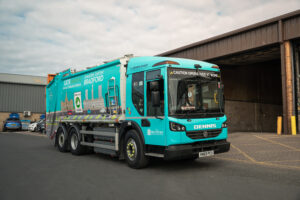Limiting air pollution to the recommended World Health Organisation levels, could prevent over 50,000 deaths across Europe according to research.
The World Health Organisation’s statistic that globally every year, seven million people die as a result of air pollution, is often used to underline the enormity of the air pollution crisis we face today. Air pollution is also the leading cause of sickness and absence from work worldwide.
A study by ISGlobal, published in the Lancet Planetary Health Journal, estimated that both nitrogen dioxide and PM2.5 cause preventable premature deaths across 1,000 European cities. It uncovered that reducing these two pollutants could prevent 51,213 deaths every year.
Authors of the study went on to state that 125,000 deaths could be stopped if air pollution levels were reduced to the lowest air quality recorded in the analysis.
Researchers ranked cities from best to worst using a ‘mortality burden score’ by combining mortality figures with city data on air pollution models.
It was found that the cities with the lowest mortality burden included Oulu in Finland, Iceland’s capital Reykjavik, and Tromso in Norway.
A total of 84% of the population were found to be exposed to PM2.5 levels exceeding WHO guidelines, with 9% exposed to higher than the recommended NO2 levels.
‘Levels above WHO guidelines are leading to unnecessary deaths,’ Mark Nieuwenhuijsem of the Barcelona Institute for Global Health commented. He went to highlight that this research ‘proves that many cities are still not doing enough to tackle air pollution’.
Sasha Khomenko, co-author of the study, said: ‘We need urgent change from private motorised traffic to public and active transportation (and) a reduction of emissions from industry, airports and ports.’
Khomenko further called for a ban on domestic wood and coal burning to help heavily air polluted European cities, as well as more accessible trees and green spaces in urban areas.




